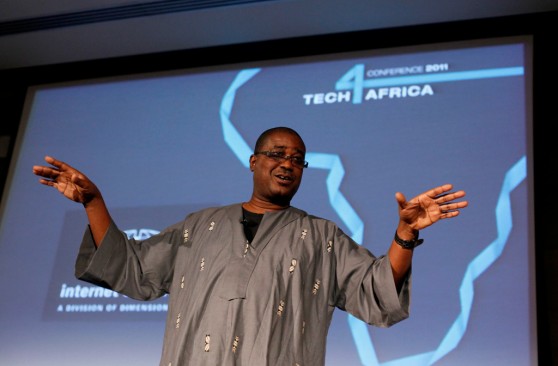I am an African technology entrepreneur and have operated on the continent for over 20 years.
In my time, the most significant development in the space has been the emergence of the internet and the proliferation of mobile-phone use. Until now, the delivery of our software products was relatively expensive, and thus out of reach of the vast majority of Africa's population. This capped the growth potential of the African software industry and limited the number of African businesses that could access our products.
But with the rapid growth of access to the internet, things today look very different. I give as an example Akatua, our industry standard payroll software product. Today, it is offered and consumed very differently than it would have been in the past.
Smaller companies, for instance a 10-employee rural carpentry shop which previously could not have afforded our product, would in the past resort to the conventional practice of a manual/paper-based payroll administration system. This often raised the risk of fraud, tedium, and tardiness.
Today, these smaller companies can log on to our cloud server and use our software via an inexpensive, pay-as-you-go internet "dongle" - which allows them to have their payroll data processed in the cloud. This is at a greatly reduced cost; a small monthly per worker fee paid by the business.
Without the internet, this "software-as-a-service" model would be unthinkable! Efficiencies brought about by new, homegrown innovations such as this contribute to the high economic growth rates being recorded across the African continent today.
Armed attacks
Another example of mobile innovation is our text message-based anti-armed-attack product. Armed attacks on homes and businesses are all too common in Africa.An external intrusion into one's home can be a pretty scary and traumatic affair, especially in an environment where the police are typically under-resourced and overwhelmed. We often hear stories of people waiting around in fear for up to an hour or more while thieves and armed robbers break down their doors and rob them.
Mr Chinery-Hesse hails the opportunities that mobile connectivity can bring In such situations, victims have been known to attempt to summon the police, only to find to their horror that either the emergency telephones numbers don't work, or that the police have no available response vehicles, or even that there is no fuel for the vehicles.Impressed by the efficiency with which mobile phone messaging technologies were employed during the Arab Spring and the London riots, we decided to develop an affordable mobile phone-based security system, Hei Julor, to help address this dire situation.
In the event that a user's home or business comes under attack, one only needs to send a blank text from one of five phones listed on our server as registered to their location. This immediately triggers the dispatch of a response team from a private security firm. At the same time, 10 friends and neighbours of the user are alerted of their plight so that they can offer assistance.
In addition, there are radio station partners who immediately commence making emergency announcements telling all and sundry about the incident and encouraging all to go and assist! The police is also alerted. Users are also given a sticker to put on a gate near their home to indicate that they have signed on to the service.
This is intended to serve as a deterrent for would be intruders - and seems to have worked very well since thus far only two real incidents have been recorded. In one instance, an elderly man triggered an alert when he was having a mild stroke. He was picked up and transported to the hospital by our security team.
Hei Julor - which means "Hey thief" - is today one of our best-selling products in Ghana, and we are about to begin our Nigeria rollout.
Impacting millions As one must observe, this service would not have been possible without mobile phones.
These kinds of products represent the technological future of my part of the world. They are appropriate, light and affordable and have the potential to directly impact millions. There are more such products we and other Africa based innovators are bringing to the African market, and we expect these tropically tolerant offerings to improve the lives of the ordinary African who for the first time can be communicated with via a mobile phone.
The ubiquity of these new platforms and the potential technological product development possibilities thereof definitely represent a game-changing moment in African history. There is no doubt that these new opportunities in information-and-communications-technology space constitute sustainable private sector initiatives that have the potential to generate jobs.
For techies like myself, we have appreciated the virgin African environment with its peculiar challenges that nevertheless have helped to unleash our creative juices. We have been called upon to bring innovative solutions to problems right to the doorstep of the disadvantaged as well as those in the remotest parts of our continent, linking us to an increasingly globalised world.
Herman Chinery-Hesse is the chairman of Softribe, a Ghana-based software company. For more than 15 years it has provided homegrown services for companies across Ghana and other parts of West Africa
CNN
Sidebar
Magazine menu

 Teline V
Best News Template For Joomla
Teline V
Best News Template For Joomla
27
Sat, Jul
22
New Articles










